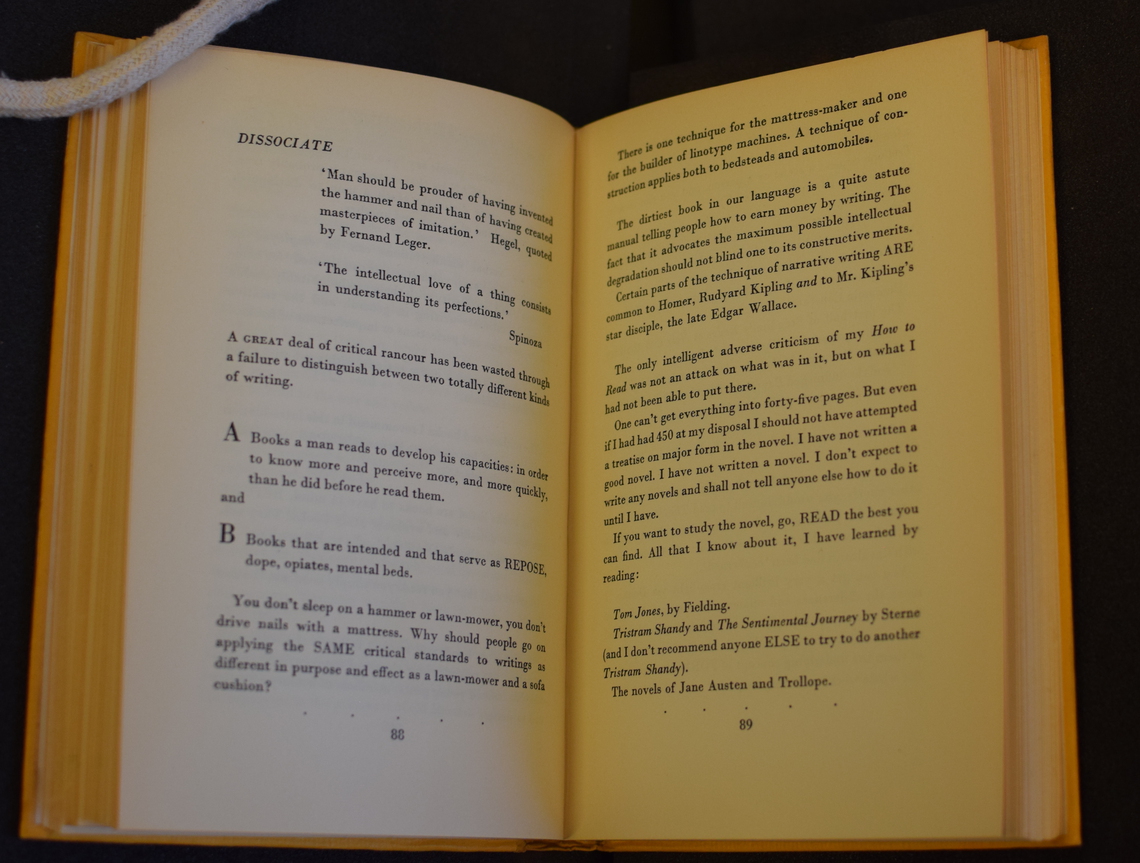ABC of Reading
-
Writing his own guide to poetry in 1934, Ezra Pound would appear to lean towards the “technique” side of this debate. But in fact Pound betrayed lingering romantic notions about writing, labelling writing manuals as the “dirtiest book in our language.” While objecting to manuals that teach people “how to earn money by writing,” he also admitted their “constructive merits.” For Pound, the issue pivoted on the “degradation” of literature into an activity for making money.
“The dirtiest book in our language is a quite astute manual telling people how to earn money by writing. The fact that it advocates the maximum possible intellectual degradation should not blind one to its constructive merits. Certain parts of the technique of narrative writing ARE common to Homer, Rudyard Kipling and to Mr. Kipling’s star disciple, the late Edgar Wallace.”
Introduction
- Label
- ABC of Reading
- Author
- Ezra Pound
- Original Publication Date
- 1934
- New Publication Date
- 1934
- Publisher
- Yale University Press
- Location
- RBML
- Case
- 1
